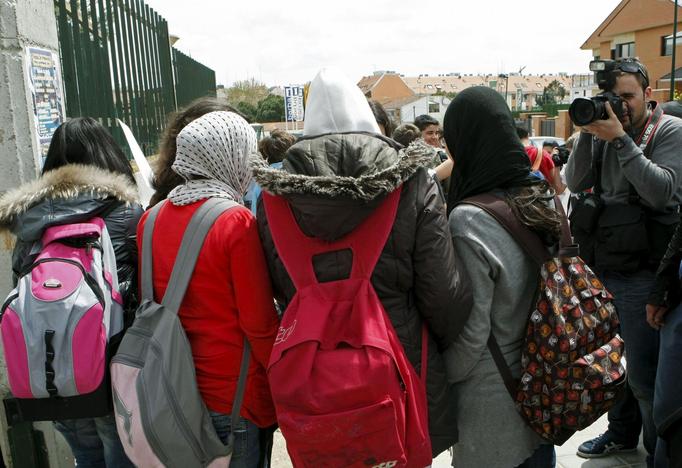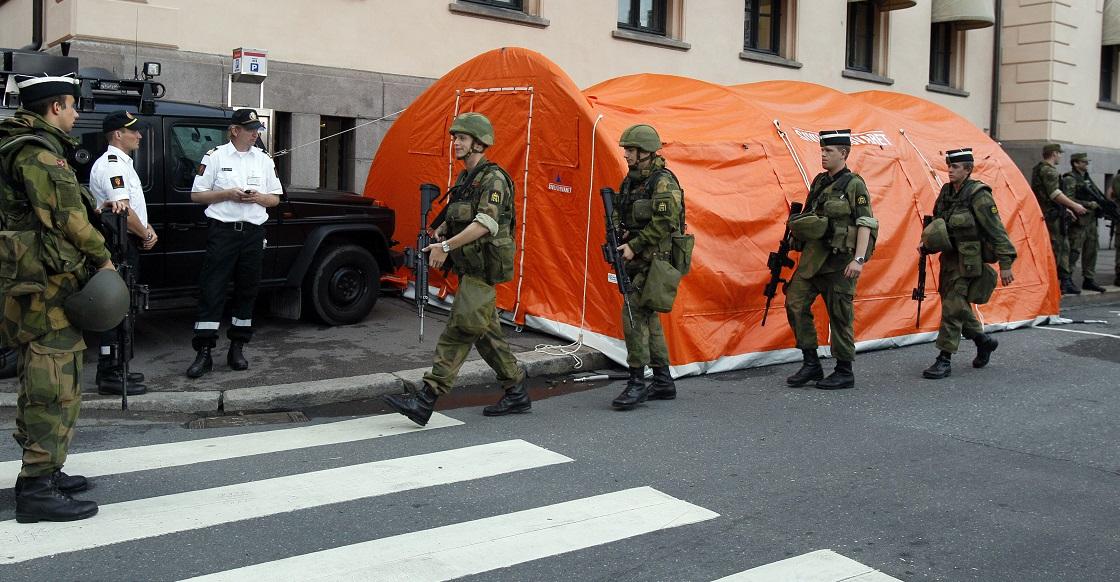Note to readers: EL PAÍS offers all the content of the Future Planet section free for its daily and global informative contribution on the 2030 Agenda. If you want to support our journalism, subscribe here.
“You can't leave the house if you don't wear the hijab.” Nadya says that he heard this phrase from her mother when she left in the morning to go to her school in the west of the island of Java, one of the most conservative in the country. The hijab, the veil used to cover the head, neck and chest by many Indonesian women, has been mandatory for her since she started high school, and the now 26-year-old girl looks back on that stage with some disgust. In her student years, Nadya's mother used to tell her that she was born with bright yellow skin and therefore had to stay covered in class, being very fair complexioned compared to the common Indonesian girl.
More informationGlances at a veiled womanThe importance of a piece of clothHijab, yes or no?, the eternal debate in FranceWhen Nadya took off her headscarf in class, she always had problems. Her friends dubbed her kerudung dusta (the hijab liar), a pretty scary judgment and label when you're a teenager, because your life seems to revolve around your peers and school. Teachers also intimidated her a few times, collecting bad points on her school report, and informing her parents that she had removed her veil.
As Anindya Restuviani, program director of the Feminist Association of Jakarta, the Indonesian capital, says, the obligation to wear the hijab in the classroom "is the embodiment of how the patriarchy believes that women should not have bodily authority, to the point of regulating what to wear or what not to wear”.
For this reason, from their group, they support the recent decree approved by the Government to stop forcing girls and teachers to wear the headscarf at school. A rule approved on February 3, when the Minister of Education and Culture, the Minister of the Interior and the Minister of Religious Affairs determined that any student or teacher can choose the clothes they want to wear in class, whether or not they are attributes religious.
Restuviani believes this is a "correct" move, considering that the dress code enforcement "is wrong in the first place, and not only discriminatory, but also sexist." The decision puts an end, legally, to this abuse in the classroom that has taken place for two decades, requiring both students and teachers to use it, as in the case of Nadya.

According to the NGO Human Rights Watch, since 2001 more than 60 local and provincial ordinances have been adopted to enforce what local officials designated as "Islamic clothing for Muslim women." A 2014 national regulation recognized that wearing the hijab was not a legal requirement, but even so, Christian students and teachers, or those of other religions, had been forced to wear it until now.
Andreas Harsono, a researcher for this organization from Indonesia, applauds the new initiative and explains that it could “have a great impact if applied consistently”, since it will affect “millions of school girls in a total of 300,000 state schools in Indonesia," he adds. “We are talking about at least 15 million schoolchildren who are under the mandatory rules of wearing the hijab, if we assume that a school has an average of 1,000 students,” he says.
The new decree establishes that students can choose to wear a long skirt and a short or long-sleeved shirt, with or without a scarf. Teachers may also stop wearing it, if they wish, at their workplace.
Certainly, there will be some challenges. Usman Hamid, director of the Amnesty International Indonesia movement, notes that the mayor of Pariaman, a town in West Sumatra, for example, has already expressed his refusal to implement the decree in his region.
@Tsogang3 @zanele_matome @ntsikimazwai Heeey weena! I was like huh? Here in S.A? Woooow! I am beyond amazed by some… https://t.co/4Qn8I7mUnl
— Bhacakazi Mon Jun 07 12:21:06 +0000 2021
On the other hand, the decree only covers public schools that are under the management of local governments and the Ministry of Education and Culture, thus, it has no effect on state Islamic schools and universities under the Ministry of Foreign Affairs. religious.
It also excludes Aceh, an extremist province in the northwest of the island of Sumatra that enjoys greater autonomy than others in the country. It is the only one that officially follows a version of sharia.
The arrival of the new decree was accelerated after a scandal in January involving a Christian who had recorded a school teacher in the city of Padang, West Sumatra, asking him to make his daughter, too Christian, wear a hijab. A fact that the school admitted and that had happened to more than 20 other students.
This is not the last scandal to happen in Indonesia in a few months. In June Moh Suhaili Fadhil Thohir, the regent of Central Lombok, a regency in the Indonesian province of West Nusa Tenggara, instructed all female Muslim officials to wear a niqab, a face covering, rather than a face mask, to fight against coronavirus.
Women began to buy this garment and in July dozens of female civil servants participated for the first time in a massive assembly wearing this outfit. Thohrir applauded the compliance and recommended the rest to make an effort to carry it. Women's and human rights groups put their hands up with a lot of pressure. Since then, it has not been raised again.
With the arrival of the new decree, local governments and school principals must revoke the mandatory hijab from any regulations before March 5th. Thereafter, sanctions will be imposed on any head of local government or school director who fails to comply.
Activists such as Harsono, from Human Rights Watch, point out that the way in which this new regulation will be implemented will be key and it will also be important to have the correct operation of the hotline service that the Ministry of Education has made available of the students and teachers so that they can report if the school directors do not follow the rules.
Monitoring should not only be done in cities, remarks Restuviani, from the Jakarta Feminist Association. Her group has seen a lot of the clothing take place in the big urban cities of Indonesia as well.
You can follow PLANETA FUTURO on Twitter, Facebook and Instagram, and subscribe here to our newsletter.


